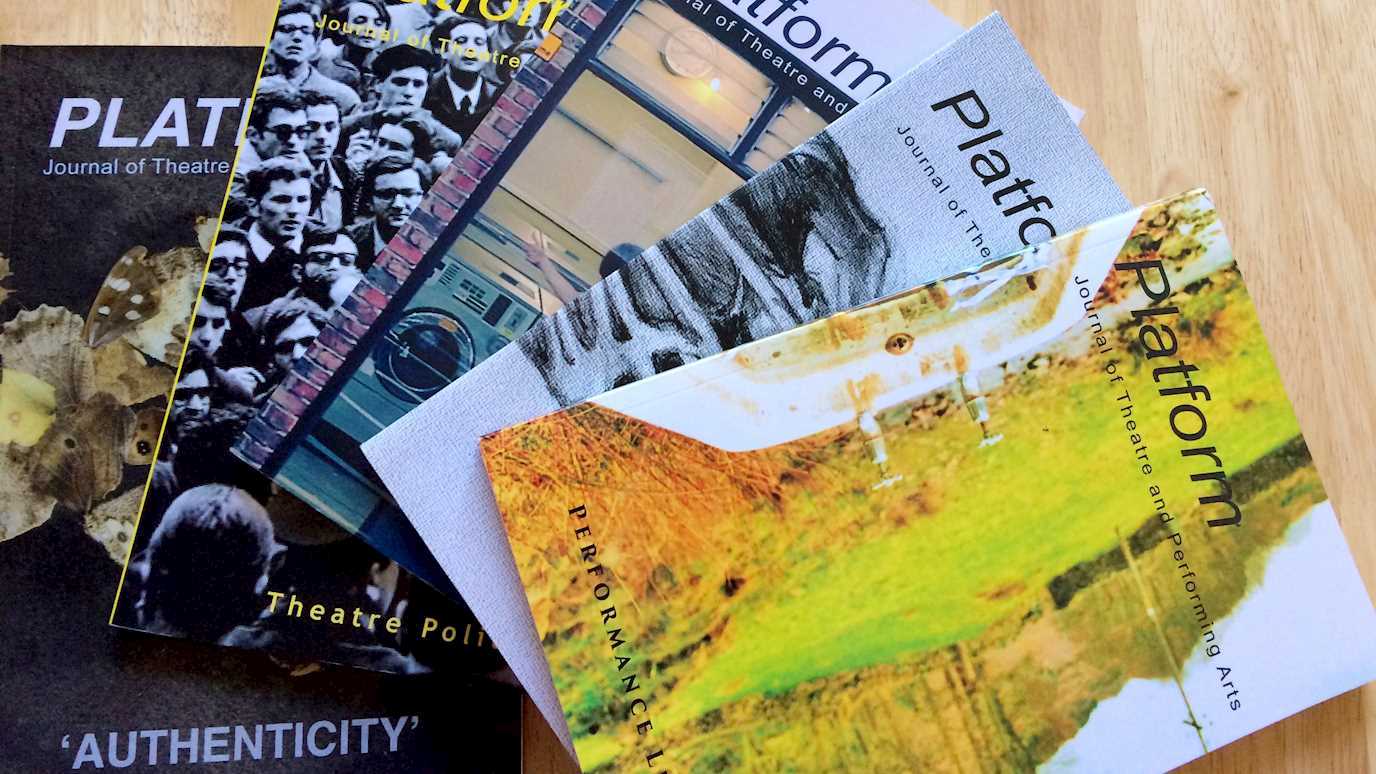Royal Central School of Drama and Speech, University of London. Hosted by Royal Holloway's Platform Journal.
Royal Central School of Drama and Speech, University of London, 62-64 Eton Avenue, London NW3 3HY. To find the rooms, follow the signs or ask the volunteers to show you the way.
The cry of criticism in crisis has recently gained a new momentum. In the early 2000s, writers like Noël Caroll, Rónán McDonald, and James Elkins attempted to capture the climate of literary criticism. In his book What Happened to Art Criticism (2003) the critic and art historian Elkins wrote about the tension that operates between a mode of descriptive reviewing, on the one hand, and of critical evaluation on the other. He claimed that 'descriptive criticism begs the question of what criticism is by making it appear that there is no question' (p. 42). He made this statement before the mushrooming of online publishing began to democratise the field of art criticism, while simultaneously expanding it due to the increasing numbers of art writing finding a way to being (self)published.
Yet, these developments might only have increased the tension between these modes of criticism (for example, see Duška Radosavljević's edited volume Theatre Criticism: Changing Landscapes, 2016). Simultaneously, Gavin Butt's 2004 edited volume After Criticism: New Responses to Art and Performance (2004), which demonstrates a more performative approach to criticism, as well as the June 2018 issue of the bilingual journal Texte zur Kunst (germ./eng.), are two of the most prominent attempts in the recent period to evaluate, critique, and bring art and performance criticism closer together.
At a time when performance (art) increasingly operates inside and outside of the economies and theories of theatres and art galleries, the question of how to critique performance becomes pressing. Drawing on Butt's, Radosavljević's, and Texte zur Kunst's invitations and cautions, the symposium aims to evaluate how theatre, art, and dance criticism can join forces to e/affectively critique live performances in the age of digital network publishing. The symposium, as well as the spring issue of Platform Vol. 13 No. 1, pose questions about the expectations, possibilities, and challenges that writers on theatre, dance, performance art, and art in general face today. What do academics, critics, and reviewers pay attention to when they write? With whom do they collaborate? Whom are they addressing in their writing? To what extent is their critical work financially remunerated? How does their writing achieve a balance between providing details of artistic productions and their socio-political, economic, historical, and theoretical contextualisation? And should they (rather not) make it crystal clear whether they like a performance?
Come and join us for an exciting day of panels, performances, presentations, and discussions!
Symposium Schedule:
09:30 - 09:45 Registration
09:45 - 10:00 Opening Remarks (Clio Unger, Josephine Leaks, Lisa Moravec)
10:00 - 11:30 Panel 1 & Panel 2
Panel 1 - Class, Criticism, and Accountability
Zofia Cielatkowska (Independent Scholar): Who Can Afford To Be An Art Critic?
Aimee Oh (Independent Scholar): Barthes on the End of Bourgeois Writing: Écriture Blanche, Robbe-Grillet, and Narrative Point of View
Charlotte Young (Queen Mary University): ‘If You Build It, They Will Come’: Renzo Martens and the Institute for Human Activities
Simultaneously
Panel 2 - Criticism and Institutional Tragedy
Tom Sojer (Karl-Franzens-University of Graz/Erfurt): Saving Democracy: Simone Weil's Theatre Criticism
Alessandro Simari (Queen Mary University): The Italian Theatre is Dead, Long Live the Italian Theatre
Christian Hartwig Steinau (Ludwig-Maximilians-Universität München): The Case of the Münchner Kammerspiele
11:30 - 12:00 Coffee Break
11:45 - 12:00 Critical Intervention from Megan Vaughan (Royal Holloway)
12:00 - 13:30 Panel 3 & Panel 4
Panel 3 - Care and Vulnerability in Criticism
Michal Norton (Independent Scholar): The Vulnerable Critic: Exploring New Structures of Criticism and Selection in the Arts
Harriet Plewis (Northumbria University): Reparative Criticism
Corrie Tan (National University of Singapore/King's College London): The Critic as Midwife: Writing Intimately about the Labour of Performance
Simultaneously
Panel 4 - Bodily Virtuosity and Critical Expertise
Katharine Kavanagh (Cardiff University): The Opportunity in the Abyss: Growing a Critical Culture of Circus
Julia Delaney and Rosie Gerhard (Royal Academy of Dance): Capturing the Sylph : How Dance Critics Bring Ballerinas to Life in their Writing
Josephine Leask (Royal Central School of Speech and Drama): Messing with Convention: Surrendering Authority and Feminist Dilemmas in My Dance Review
13:30 - 14:30 Lunch
14:30 - 15:30 Keynote by Prof Sabeth Buchmann:
Feedback as the Inside of the Outside of Critique or: Performance in the Evaluation Society
15:30 - 16:00 Response from Dr Duška Radosavljević and Questions
16:00 - 16:15 Coffee Break
16:15 - 17:45 Panel 5 - Critical Currents
Hannah Greenstreet (Oxford University): Performing Feminist Theatre Criticism: RashDash’s Three Sisters: After Chekhov
Andrea Liu (Goldsmiths, University of London): Performing the Feed: Durational Performativity and the Live Feed
Heidi Liedke (Queen Mary University): Quasi-Experts and the Paradocumentational Brim in the Context of Live Theatre Broadcasting
17:45 - 18:00 Break
18:00 - 19:15 Round Table with Hetain Patel and Sanjoy Roy and Dr Diana Damian Martin (please book separately: https://bit.ly/2ESKzYb)
Followed by a Wine Reception.
Sabeth Buchmann is an art historian and critic who divides her time between Berlin and Vienna. She is Professor of Modern and Postmodern Art at the Academy of Fine Arts Vienna. Together with Helmut Draxler, Clemens Krümmel, and Susanne Leeb, she co-edits polypen, a series on art criticism and political theory, published by b_books, Berlin. Recent publications include Putting Rehearsals to the Test. Practices of Rehearsal in Fine Arts, Film, Theater, Theory, Politics (co-edited with Ilse Lafer), Hélio Oiticica, Neville D’Almeida and others: Block-Experiments in Cosmococa, London, 2013 (with Max Jorge Hinderer Cruz); as well as Film, Avantgarde und Biopolitik, Vienna, 2009 (co-edited with Helmut Draxler and Stephan Geene) and Denken gegen das Denken. Produktion – Technologie – Subjektivität bei Sol LeWitt, Hélio Oiticica und Yvonne Rainer, Berlin 2007, Art After Conceptual Art, Generali Foundation Collection Series, Cambridge, Mass/ Köln 2006 (edited with Alexander Alberro).
Duška Radosavljević is a Reader in Contemporary Theatre and Performance at the Royal Central School of Speech and Drama. She has worked professionally as a dramaturg and a theatre critic. Between 1998 and 2010 she was a member of the Stage Newspaper’s reviewing team and Acting Excellence Awards panel at the Edinburgh Festival. She was a recipient of the Harold Hobson Student Drama Critic Award (1998) and a nominee for the Allen Wright Award for Arts Criticism (2002). As an academic, she is the author of Theatre-Making: Interplay Between Text and Performance in the 21st Century (2013) which received the David Bradby research prize in 2015. She has published edited collections The Contemporary Ensemble (2013) and Theatre Criticism: Changing Landscapes (2016) and has contributed numerous articles to edited collections and academic journals.
Platform is a Royal Holloway-based refereed journal that has been devoted to publishing the work of postgraduates, postdoctoral researchers, and entry-level academics in the fields of theatre and the performing arts for more than a decade. Platform, as the name suggests, works to provide a space for postgraduate researchers and entry-level academics to have their work circulated through online publication. The journal comes out of Royal Holloway. It operates a peer and academic review system to ensure that contributors not only have the opportunity to publicise their research, but also receive valuable feedback. Platform is published twice a year, with each edition following a broad theme, making it possible for diverse research interests to be covered in each volume.






















